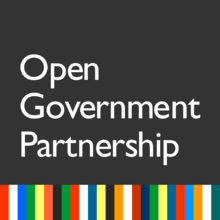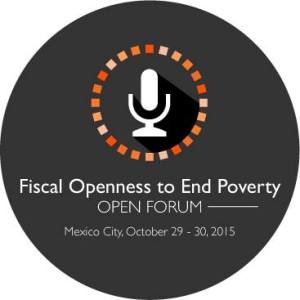Francisco A. Laguna & Melanie Enciso
This week, we begin a 2-part series on the Obama Administration’s Open Government Partnership. Today, we describe the program; the following posts will review the progress made by the participating countries.
President Barack Obama believes that the strongest foundation for human progress lies in open economies, open societies, and open governments. Open governance describes a relationship between the government and its citizens that is founded on transparency, cooperation and the public’s participation. The concept of open governance ensures that a country’s citizens have access to their government’s information, data and processes. It demonstrates that governments are willing to respond to citizens’ suggestions and collaboratively work together to solve the issues currently challenging the country and its political system. In participating in active communications with their government, citizens should essentially be able to communicate with their country’s leaders, directly and indirectly, through complaints, criticisms and suggestions. In an open government structure, mechanisms are put in place so that citizens can request better services fully knowing that their government has the capability of responding accordingly.
Open Government Partnership
 With the concept of open governance in mind, the Open Government Partnership (“OGP”) was formally launched on September 20, 2011. A completely voluntary multilateral initiative, OGP’s primary objective is to secure firm commitments from governments to promote open governance by combating corruption, improving transparency, empowering citizens and utilizing new technologies to improve governance. The eight founding governments include the United States, the United Kingdom, South Africa, Indonesia, Mexico, Brazil, Norway, and the Philippines. By aiding participating governments in becoming more transparent, accountable and responsive to their own citizens, the OGP’s ultimate goal is to improve the quality of services citizens receive as well as the quality of governance.
With the concept of open governance in mind, the Open Government Partnership (“OGP”) was formally launched on September 20, 2011. A completely voluntary multilateral initiative, OGP’s primary objective is to secure firm commitments from governments to promote open governance by combating corruption, improving transparency, empowering citizens and utilizing new technologies to improve governance. The eight founding governments include the United States, the United Kingdom, South Africa, Indonesia, Mexico, Brazil, Norway, and the Philippines. By aiding participating governments in becoming more transparent, accountable and responsive to their own citizens, the OGP’s ultimate goal is to improve the quality of services citizens receive as well as the quality of governance.
Joining the OGP
To become a member of the OGP, participating countries must first meet the standards of eligibility. A potential OGP country must substantiate its commitment in the four main areas of fiscal transparency, information access, disclosures of income and assets, and citizen engagement. Using public sources for data, OGP scores the countries on a 100-percent scale; each country must score at least a 75% in each main category. In addition to the categorical rating, the country must submit a letter of intent and must designate a leading ministry or agency to begin implementing the country’s respective open government strategy.
 After passing the initial criteria for membership, as a new member of the OGP, participating countries are required to: 1) accept a “high-level Open Government Declaration”; 2) develop a “concrete action plan” created through public consultation; and 3) agree that their progress going forward can be reported by independent sources. By agreeing to uphold the Open Government Declaration, a government makes a commitment to increase the availability of information about governmental activities, support civic participation, implement the highest standards of professional integrity throughout its administrations, and increase access to new technologies for openness and accountability. Governments that wish to participate in the OGP must also establish rules that require public disclosure of assets and income for senior and elected public officials because such rules are integral to fighting corruption and facilitating government accountability. Additionally, governments must develop fiscal transparency by publishing essential budget documents in a timely manner in order to promote budget accountability and an open budget system. In supporting both government reforms and civil society recommendations, OGP aspires to advance open government by providing a cover for challenging reforms and forming a community of supportive like-minded reformers from countries worldwide.
After passing the initial criteria for membership, as a new member of the OGP, participating countries are required to: 1) accept a “high-level Open Government Declaration”; 2) develop a “concrete action plan” created through public consultation; and 3) agree that their progress going forward can be reported by independent sources. By agreeing to uphold the Open Government Declaration, a government makes a commitment to increase the availability of information about governmental activities, support civic participation, implement the highest standards of professional integrity throughout its administrations, and increase access to new technologies for openness and accountability. Governments that wish to participate in the OGP must also establish rules that require public disclosure of assets and income for senior and elected public officials because such rules are integral to fighting corruption and facilitating government accountability. Additionally, governments must develop fiscal transparency by publishing essential budget documents in a timely manner in order to promote budget accountability and an open budget system. In supporting both government reforms and civil society recommendations, OGP aspires to advance open government by providing a cover for challenging reforms and forming a community of supportive like-minded reformers from countries worldwide.
OGP Countries
Since its inception, the OGP’s eight founding governments have received the commitment of 57 other governments as members. In total, OGP’s 66 participating countries have made more than 1,000 commitments for the purpose of making their governments more open, transparent, and accountable. In the almost four years since its formation, the question that should now be considered is whether a firm foundation for open governance has been established, and if it has, whether that foundation has a positive effect on its participating countries.
TransLegal is available to discuss how the Open Government Partnership may affect corporations and individuals in the member states. Call us with your questions.
